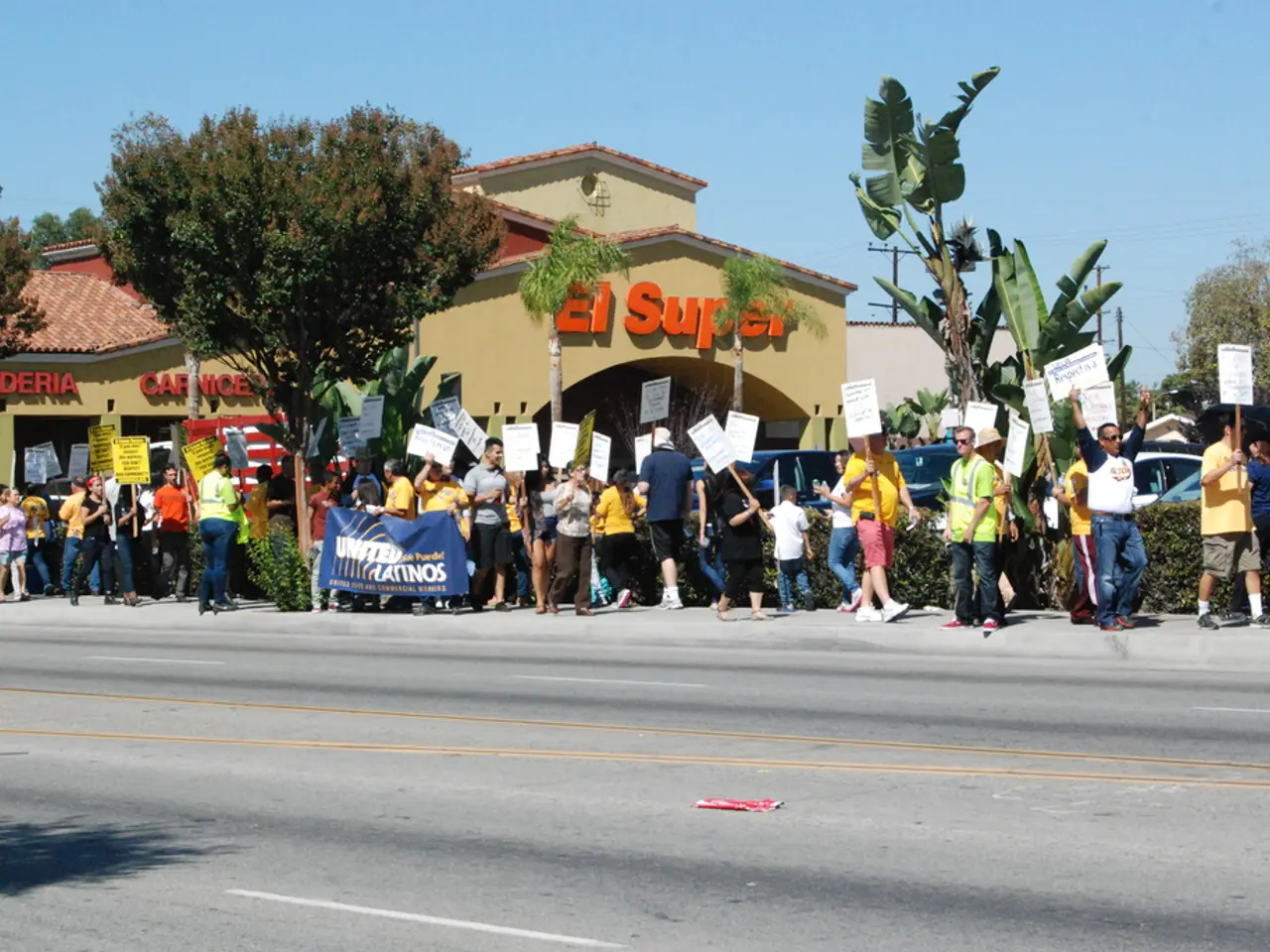Insights from the initial cash donations for the NYC mayor's general election campaign
In the 2025 Democratic primary for New York City mayor, independent expenditure committees (IECs) have played a significant role, particularly in terms of spending during the general election cycle. Unlike candidate campaigns participating in the city's public matching funds program, which face an $8 million spending cap, IECs can spend unlimited amounts independently to support or oppose candidates.
The IEC "Fix the City," aligned with Andrew Cuomo, spent a staggering $22.4 million during the primary, supporting Cuomo and attacking his rival Zohran Mamdani. Three donations from former Mayor Michael Bloomberg alone totaled $8.3 million, surpassing the entire legal spending cap on campaigns participating in the matching funds program.
Cuomo, who officially launched his campaign post-primary, has relatively modest direct fundraising but benefits from ongoing IEC contributions. Fix the City reported three donations totaling $300,000 just in the week after the primary. Other anti-Mamdani PACs are reportedly looking to raise around $25 million for the general election, suggesting large-scale outside spending will persist.
The Campaign Finance Board monitors these independent expenditures but currently lacks legal authority to lift spending caps or otherwise restrict IEC spending, complicating efforts to level the playing field.
Eric Adams, another major candidate, had the best fundraising period among the five major candidates for mayor in November, raising $1.5 million. However, a significant portion of his donors came from outside New York City and the state. Adams was again denied public matching funds by the city's Campaign Finance Board this week.
Zohran Mamdani, the Democratic nominee for mayor, raised more than $816,000 in grassroots donations after the primary, with an average donation size of $83, significantly smaller than Adams' $935 and Cuomo's $209. Mamdani's campaign attracted support from addresses outside New York City, accounting for over half of his donations.
Andrew Cuomo raised only $64,000 in the latest campaign finance reporting period, leaving him with roughly $1.2 million in the bank. In contrast, Adams has roughly $4.3 million, the most cash on hand of the general election candidates. It's unclear if Fix the City will remain strictly aligned with Cuomo or spend on behalf of another candidate or against Mamdani.
In a recent development, Mamdani attended a fundraiser for his reelection held in Florida last week, while Adams was hosting a fundraiser at SL Green, a real estate firm that is renting his campaign office space and has contributed significantly to his fundraising efforts.
These developments underscore the growing influence of independent expenditure committees in New York City mayoral races. The spending by these committees has raised concerns about the effectiveness of public matching funds caps and the transparency and fairness of the electoral process.
- The significant role of independent expenditure committees (IECs) in the 2025 Democratic primary for New York City mayor, as seen in the spending by committees like "Fix the City," has sparked concerns about the fairness and transparency of the electoral process.
- The unlimited spending capabilities of IECs, compared to candidate campaigns participating in New York City's public matching funds program, have allowed committees such as "Fix the City" to pour substantial amounts of money into supporting or opposing candidates, as evidenced by the $22.4 million spent by the former on Andrew Cuomo.
- In the realm of finance, policy-and-legislation, and politics, the Campaign Finance Board's current lack of legal authority to restrict IEC spending complicates efforts to level the playing field, allowing committees to continue investing heavily in real-estate-related matters and general-news-related matters, potentially impacting the city's future.




